
Foto: Reuters
The view that Serbian President Aleksandar Vučić is still a legitimate partner of the European Union because of regional stability is rapidly changing, says Marko Kmezić, a professor at the University of Graz.
“I wouldn’t say he no longer has empty support, far from it,” Kmezić said in an interview with RFE/RL.
He explains that in order to reach a turning point, the European Commission must take a much tougher approach to Vučić and his Serbian Progressive Party. He cites the reason why Brussels’ significant support for Vučić’s regime is still perceived as being that foreigners are not entirely sure who to talk to about the issues that interest them.
“Who will they talk to and what is their opinion on Kosovo, what will happen with possible support for Russia and even mining in Serbia,” said Kmezić, who deals with the rule of law, democratization, and integration with the EU, among other things.
He points out that the political ideology behind the student protests is not entirely clear to him and that it is difficult to assess until ideas on how the student list will tackle political problems are heard.
“Although students have often been accused of flirting with the right wing, they have led to national reconciliation, and we have seen this many times in Novi Pazar and in the inclusion of national minorities in the student protest,” he said.
Students participating in the blockade and leading anti-government protests insist that the authorities are responsible for the deaths of 16 people in the collapse of a concrete canopy at a railway station in Novi Sad and are demanding early parliamentary elections.
“The energy of the protests has not been exhausted”
RFE/RL: Mass anti-government protests in Serbia are approaching their anniversary. How do you explain their duration?
Marko Kmezić: First of all, because none of the original demands have been met, but that would not be enough.
I would say it is mainly due to the solidarity of this new group carrying out the protests, this student body. This is quite different from the civil protests we have seen in recent years.
On the other hand, the reason for the protests is the blatant corruption of the ruling elites, the lack of transparency in the government’s work, and the disregard for the rule of law and, consequently, freedom of speech and assembly.
The citizens and students who are protesting have realized that if they give up now, the situation will not improve, but will become much worse.
In this sense, the anniversary (of the fall of the branches) will be a real litmus test of everything that has been done over the past year. And I think that the energy has certainly not been wasted, but will accumulate until that date.
RFE/RL: What is the government showing by refusing to call elections, especially since Serbian President Aleksandar Vučić has held early elections several times in the last decade?
Kmezić: Aleksandar Vučić has held early elections more often than regular elections, and his style of governing has been a kind of permanent pre-election state for more than a decade, in which he has found himself quite comfortable.
But every time he ran for office, he was confident that he would win the election, either fairly or by manipulating the electoral process in some way. This time, that is not the case.
According to some polls we have seen in recent months, the student list, together with the opposition list, would win the election.
By disagreeing with the election announcement and instead seeking other means to combat the protesters through the indiscriminate use of force and police brutality, he is showing weakness and uncertainty about his chances of winning.
Even in the current circumstances, with all the electoral manipulation, he is not sure that he will win the election.
“The student list is a strong opponent”
RFE/RL: Does this mean that the student list, even though we do not yet know who is on it, is a strong possibility for the government and Vučić, and can this student movement offer an alternative to the government?
Kmezić: They are certainly a strong opponent and the number one challenger at the moment. Of course, the negative image of the opposition parties over the last decade, as well as their fragmentation and internal conflicts, contribute to this.
The student list has not been published, but it is a legitimate challenger to the ruling coalition. I don’t see the fact that it hasn’t been published as a problem; it could be an advantage.
We have seen this many times before. For example, in Slovenia a few years ago, the list that was published or compiled a month before the elections won, and even in 2000, the election campaign of the DOS (Democratic Opposition of Serbia) coalition began two months before the elections.
“Urgent cooperation with the opposition”
RFE/RL: How do you view students who refuse to cooperate with the opposition, and what do you think is the best solution: a unified list drawn up by students participating in the blockade, or a list drawn up by students and the opposition?
Kmezić: It’s a matter of mathematics, but it’s clear that both lists will include some names that could potentially alienate voters, so the idea is for both lists to cooperate.
The students have been quite vocal about why they reject any institutional cooperation with the opposition. They are not distancing themselves from the policies of Aleksandar Vučić and the government, but from the way politics and the political scene in Serbia have functioned so far.
They believe that a system needs to be built, that institutions need to be strengthened, and they do not trust any of the political actors who have been in power in Serbia over the last two and a half decades.
In any case, I believe that in any scenario, whether there are two lists or one, cooperation between the two political blocs is essential, at least at the level of joint observation of the electoral process.
Students may have enough staff, but they lack experience in monitoring electoral processes and pre-election activities, where the potential for manipulation and intrigue is much greater.
RFE/RL: And how well is the opposition doing in these circumstances? Apart from their recent appearance in the European Parliament, it seems as if they have completely ceded the field to the students, although in recent days we have seen initiatives and calls for joint action.
Kmezić: Initially, the opposition did indeed leave the main part of political action to the students. Of course, they are also interested in remaining a political factor, and their appeals to both European institutions and other geopolitical actors are something I consider positive.
The reason why we continue to see significant support for Vučić’s regime from Brussels is that foreigners are not entirely clear about who they should sit down and talk to. They are also unsure about what the answers would be to the issues that interest them and that remain a kind of ballast for Serbia, regardless of who is in power.
So, they are interested in who they will be talking to and what their opinion is on the status of Kosovo, what will happen with possible support for Russia, which is affected by EU sanctions, and even the issue of mining in Serbia.
“EU policy toward the regime in Serbia is changing rapidly”
RFE/RL: Does this mean that the EU and the West may be afraid of a shift to the right because the student protest is quite diverse and some people reject certain ideas and actions, as was the case with the protest on Vidovdan?
Kmezić: That was also the case with the protest on Vidovdan, but before that it wasn’t so pronounced. The question is how much this is an isolated case and how much it is a product and narrative of the ruling structures themselves.
I think that this is not the main problem of the West, but rather that they can afford a wait-and-see strategy – we will wait and see what happens.
So they are not in such a hurry, and the prevailing narrative, at least until recently, has been one of stabilocracy, where it is important for the region to remain stable, to avoid new conflicts or unforeseen situations. The geopolitical situation is such that both the EU and other geopolitical powers are focusing on other pressing global issues.
However, Aleksandar Vučić’s response has recently been an escalation of violence. And now it is becoming quite uncomfortable that the EU is silent about the latest events, partly because of the narrative that has been created in the media in Germany, Austria, and other countries. And now we are at a point that could be a turning point.
We have recently heard that the European People’s Party will consider the possible exclusion of the Serbian Progressive Party (SNS) from its associate membership. And in this sense, it is possible that the European Parliament will be consistent in condemning the violation of the rule of law in Serbia.
However, the European Commission (EC) remains largely silent, despite some recent statements by European Commissioner Marta Kos.
I think that in order to achieve a breakthrough, the European Commission may need to take a much tougher approach towards the SNS and Vučić.
“Vučić’s actions were not welcomed in Brussels and Berlin”
RFE/RL: Does that mean that Aleksandar Vučić still has the support of the EU at this point?
Kmezić: I wouldn’t say he still has unconditional support, far from it. I repeat, it’s a question of stability, where he may still be perceived as a legitimate partner.
However, as far as I can see, this opinion is changing very quickly. His government has made many missteps in the last ten months. He is used to ruling when he is in power, and in this situation, when the country is under pressure, he has made many forced moves and gestures that were not entirely welcome or clear in Brussels or Berlin.
We are seeing increasingly vocal statements that, for example, the Jadar project, which was recently included in the EU’s list of energy priorities, is considered practically dead in the sense that Vučić no longer has the political credibility in the country to implement it.
There is also growing condemnation of its constant hot-and-cold policy toward Moscow, and the icing on the cake is the repression of citizens protesting in Serbia. All of this together seems to me to be leading to a rapid change in EU policy toward the regime in Serbia.
RFE/RL: How much room for Moscow’s influence is there in Serbia at the moment?
Kmezić: It is quite limited, and I would say as much as the regime in Serbia allows. I think that the information coming from Moscow is being transmitted selectively and has not been entirely positive for Aleksandar Vučić’s regime.
However, Russia is good and strong at spreading fake news and disinformation. And I see that the regime in Belgrade is quite selective in adopting and transmitting it to the extent that it benefits them. I see this mainly through the initiative of the authorities in Serbia, as we had in the analysis of the sound cannon, whether it was or was not.
“Vučić is appealing to his voters”
RFE/RL: Vučić has been calling the protests a “color revolution” for some time now and even mentions terrorist acts. We have also recently seen changes in the security sector. Is this a sign of his strength or weakness?
Kmezić: As always, he is primarily addressing his voters. The military parade in Belgrade should serve this purpose. He is trying to show that he has consolidated his parties and that there is no problem there.
However, everything else suggests that his regime is completely delegitimized internally, and his very obvious avoidance of calling elections shows that he no longer believes in institutional ways of dealing with the political challenge posed by students, but is resorting to the use of state force.
The very fact that a large number of protesters have been charged with very serious crimes, including threatening the constitutional order or terrorism, shows how much domestic institutions, especially the courts and prosecutors, are under the control of the ruling elites.
This is also supported by the recent dismissal of certain generals who were seen by some police structures as not entirely loyal to Aleksandar Vučić.
RFE/RL: Is there a danger that Serbia will turn to the right?
Kmezić: This danger is always present in Serbia, and I do not fully understand the political ideology of the student protests, but of course such a danger exists.
Until we see the student list, until we hear clear ideas about how it will deal with political problems, it is difficult to give any assessment. And it is possible that this is precisely why there is the idea of two lists, one formed by political parties and one formed by student protests.
This is the society in which Aleksandar Vučić will leave the country, and this is the result of politics, not only his, but also the politics of the last 25 years, of not facing the past.
I believe that we will have to go through a process, but I do not think that it will be a radical change that would lead to further problems, both in terms of European integration and relations with neighbors.
Although students have often been accused of flirting with the right wing, they have led to national reconciliation, as we have seen many times in Novi Pazar, and the inclusion of national minorities in student protests.
RFE/RL: Is Serbia moving away from the EU, given that no chapters have been opened in almost four years and that neighboring countries such as Albania are overtaking Serbia?
Kmezić: I wouldn’t say it is moving away, but it is certainly not moving closer. For a decade now, we have had “the same goal, the same distance.”
And this process has been completely frozen for the last ten years, despite various initiatives coming from Brussels that were supposed to help with economic stability and progress in reforms.
I don’t think Serbia is moving away, because it is clear to me that tomorrow or next year, if the new government took a pro-European path, things could move very quickly again.
I don’t think we are drifting away, but we are not getting any closer either, and this is best seen in the fact that Serbia is no longer considered a leader in the European integration process; now it is Montenegro and Albania.
And perhaps even Moldova, which is relatively new to the European integration process, but is increasingly being talked about as a country that could overtake Serbia./RSE/

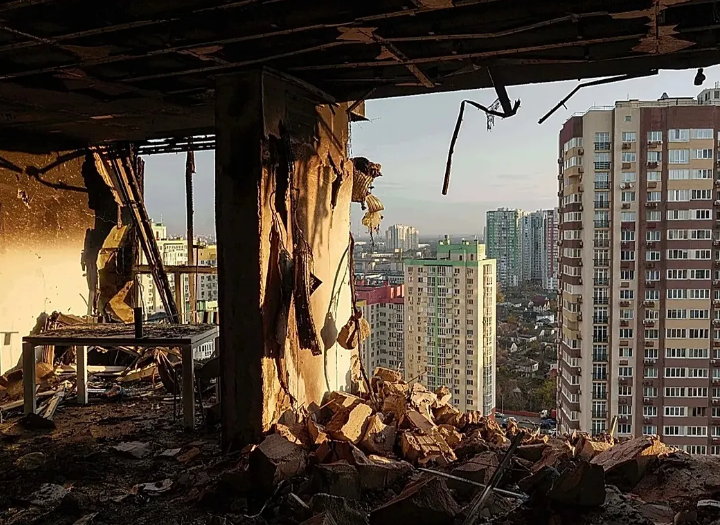 Azerbaijan protests to Russia after Kyiv embassy damaged in Russian missile attack
Azerbaijan protests to Russia after Kyiv embassy damaged in Russian missile attack 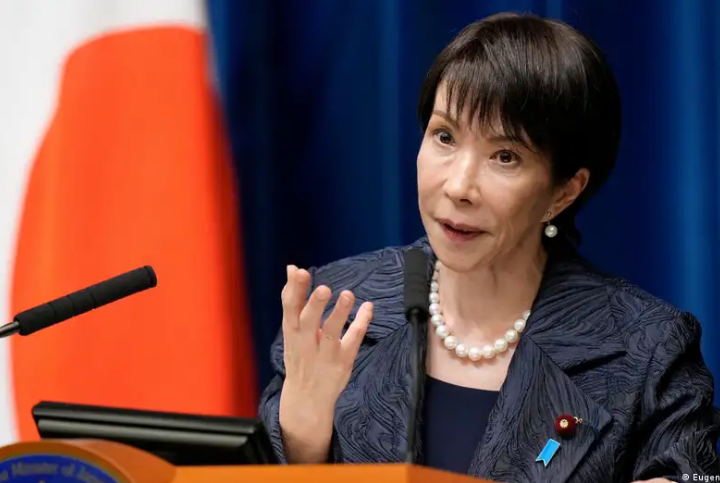 Japan urges China to scale back response in Taiwan row
Japan urges China to scale back response in Taiwan row 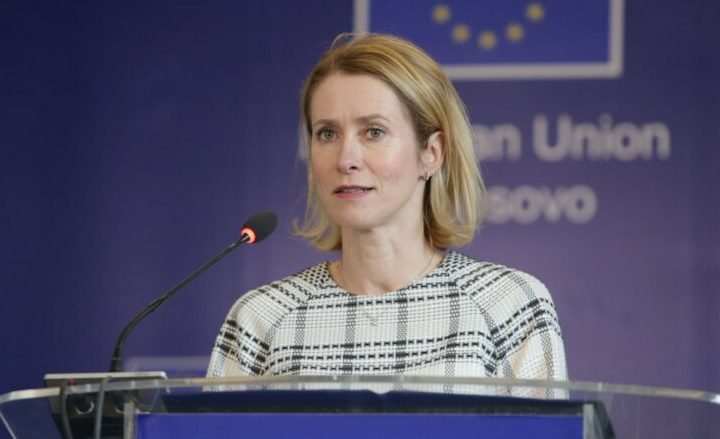 Kallas confirms EU working on new sanctions package against Russia
Kallas confirms EU working on new sanctions package against Russia 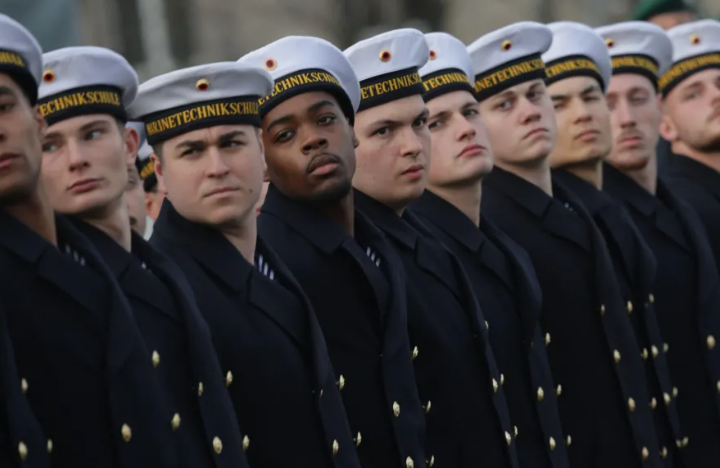 Germany agrees new military service plan to boost troop numbers
Germany agrees new military service plan to boost troop numbers 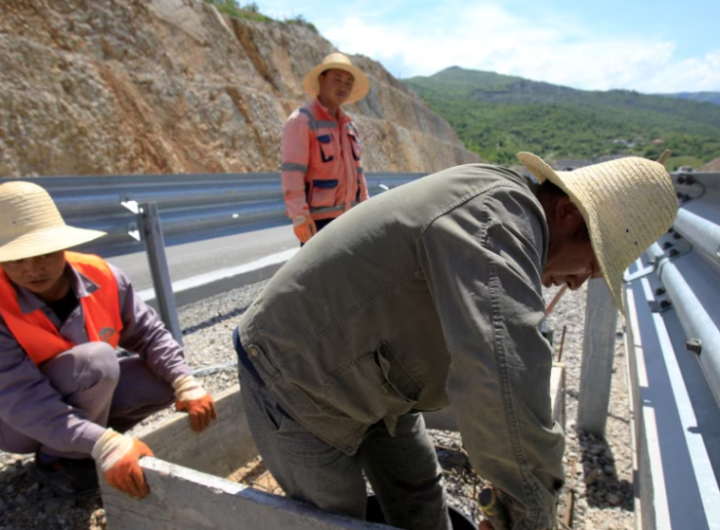 US-sanctioned Chinese company in race to build Montenegro highway
US-sanctioned Chinese company in race to build Montenegro highway 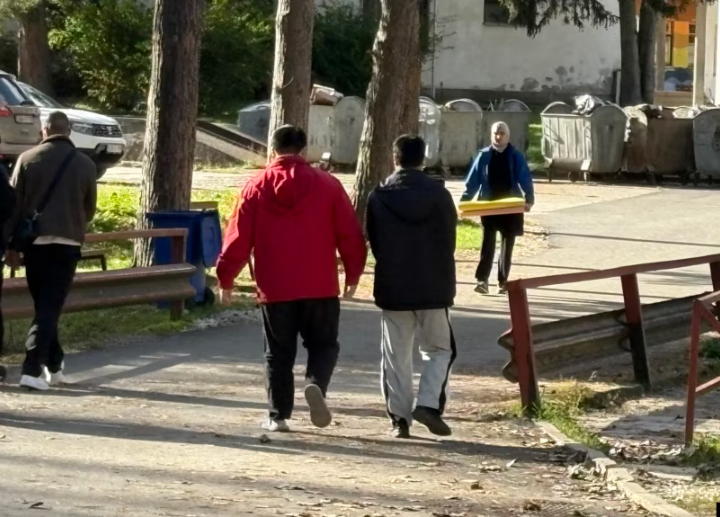 The Western Balkan route – A new path for chinese migrants to the west
The Western Balkan route – A new path for chinese migrants to the west